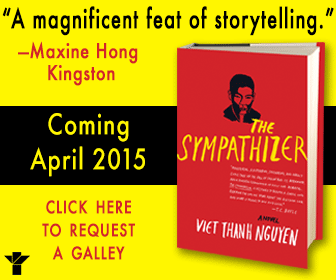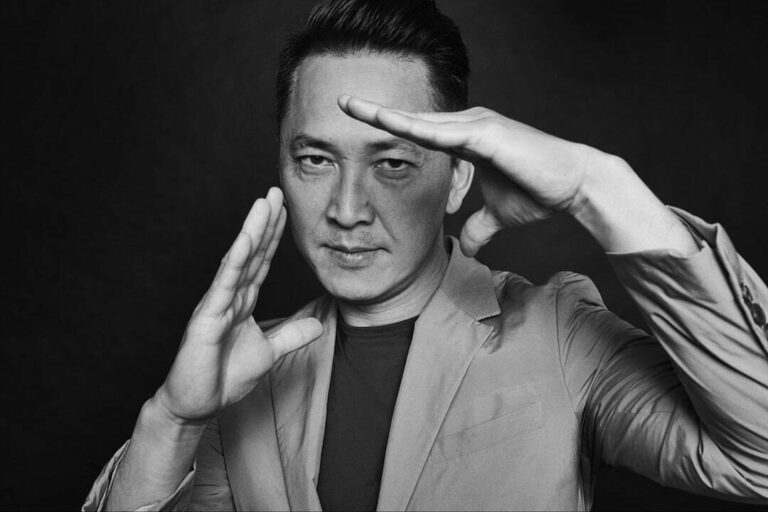Viet Nguyen’s novel, THE SYMPATHIZER, will be published in April 2015. Here he talks about why he wrote it.

The novel, THE SYMPATHIZER, begins in April 1975, as Saigon is about to fall to communist invasion. Soon enough it does, and the war is over. Or is it?
Black comedy, historical novel, and literary thriller, THE SYMPATHIZER follows a nameless spy who has infiltrated the South Vietnamese army and is ordered to flee with its remnants to America. His mission: report on their efforts to continue their lost war. As the aide to a general who refuses to admit defeat, he observes the struggles of the Vietnamese refugees to survive in a melancholic Los Angeles. Among them, the general believes, are communist agents. So our spy’s double life continues, hunting communists while helping the general organize a covert army.
I see this novel not as a Vietnamese or Vietnamese American story, or even a Vietnam War novel. It is a post-Vietnam War novel. Set in the years after the war, it’s my fictional response to, and revenge on, all those movies and books that did such a fine job with the American point of view and a rather miserable one with the Vietnamese. I grew up reading books and watching movies about America’s Vietnam War, but among all of these, precious little was said about the Vietnamese, who were depicted as stereotypes and foils to American heroes and played by bit actors. This was one motivation for me to write this novel, but far from the only one. By the conclusion, the novel shows how some of the practices of our contemporary war on terror have their roots in the Vietnam War. In the end, I hope that what I accomplish, besides providing a good read with lots of violence, intrigue, drugs, music, humor and sex, is to conjure in our observant spy a narrator who can see the beauties and the horrors of both America and Vietnam.
I came to writing this novel after many years of scholarly work on the Vietnam War, and after having finished a yet-to-be published short story collection, EVERY WORD NEVER WRITTEN. The collection deals with the lives of those touched by the war, from Vietnamese refugees to the Vietnamese left behind, as well as the Americans who knew them, loved them, or hated them. Stories from the collection have appeared in Best New American Voices 2007 and TriQuarterly, and other stories from it have won prizes from, and been published in, Gulf Coast, Narrative Magazine, and The Chicago Tribune (for its Nelson Algren Award competition). In their own very different ways, the collection and the novel allow me to look at the domestic traumas and political histories which have made me the writer that I am, a refugee born in Vietnam but made, for better and for worse, in America.











